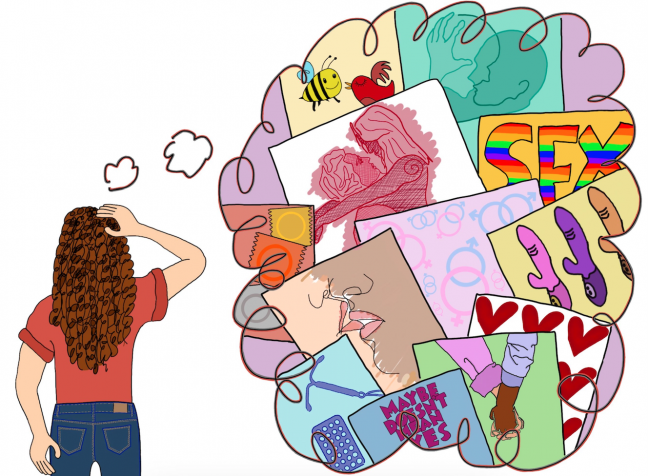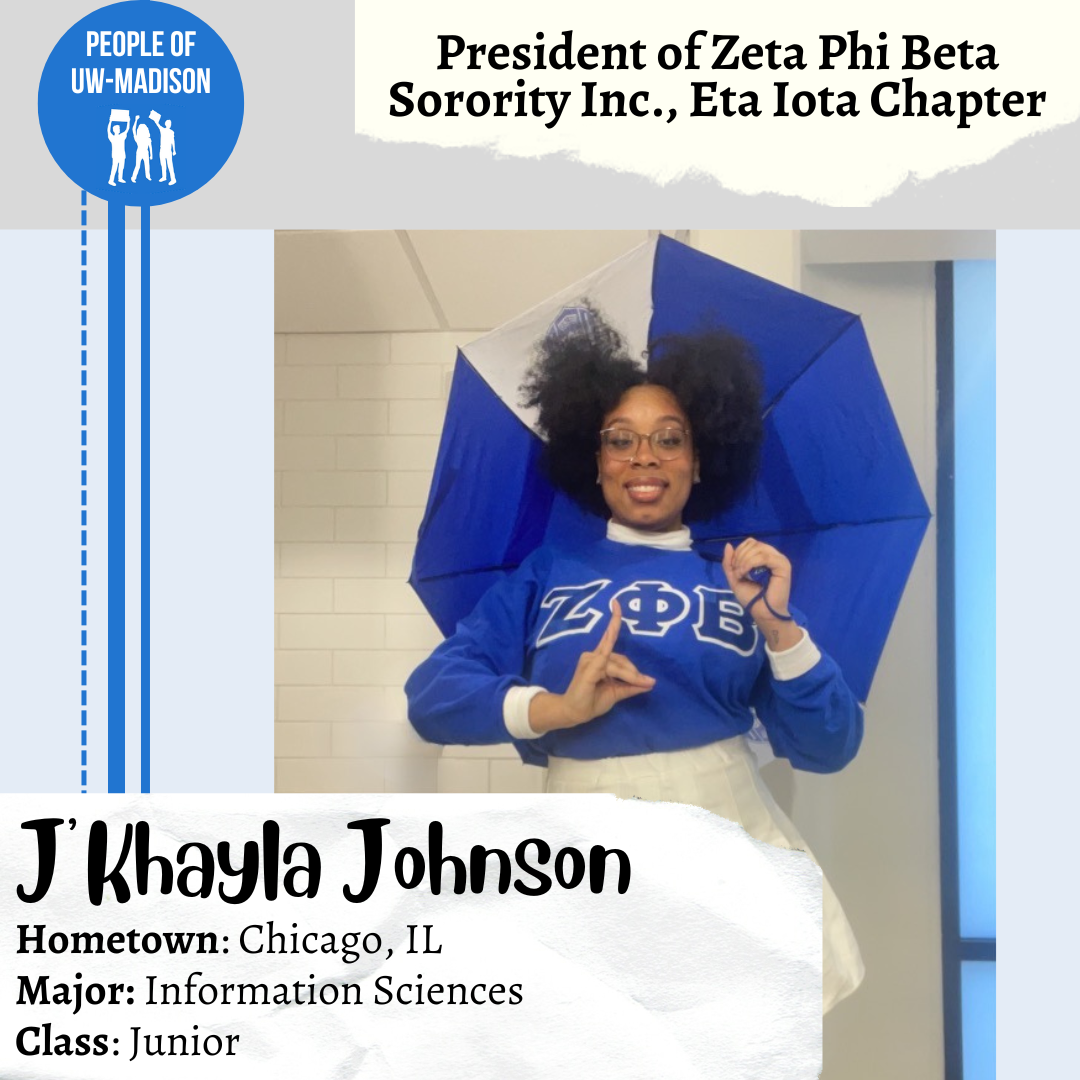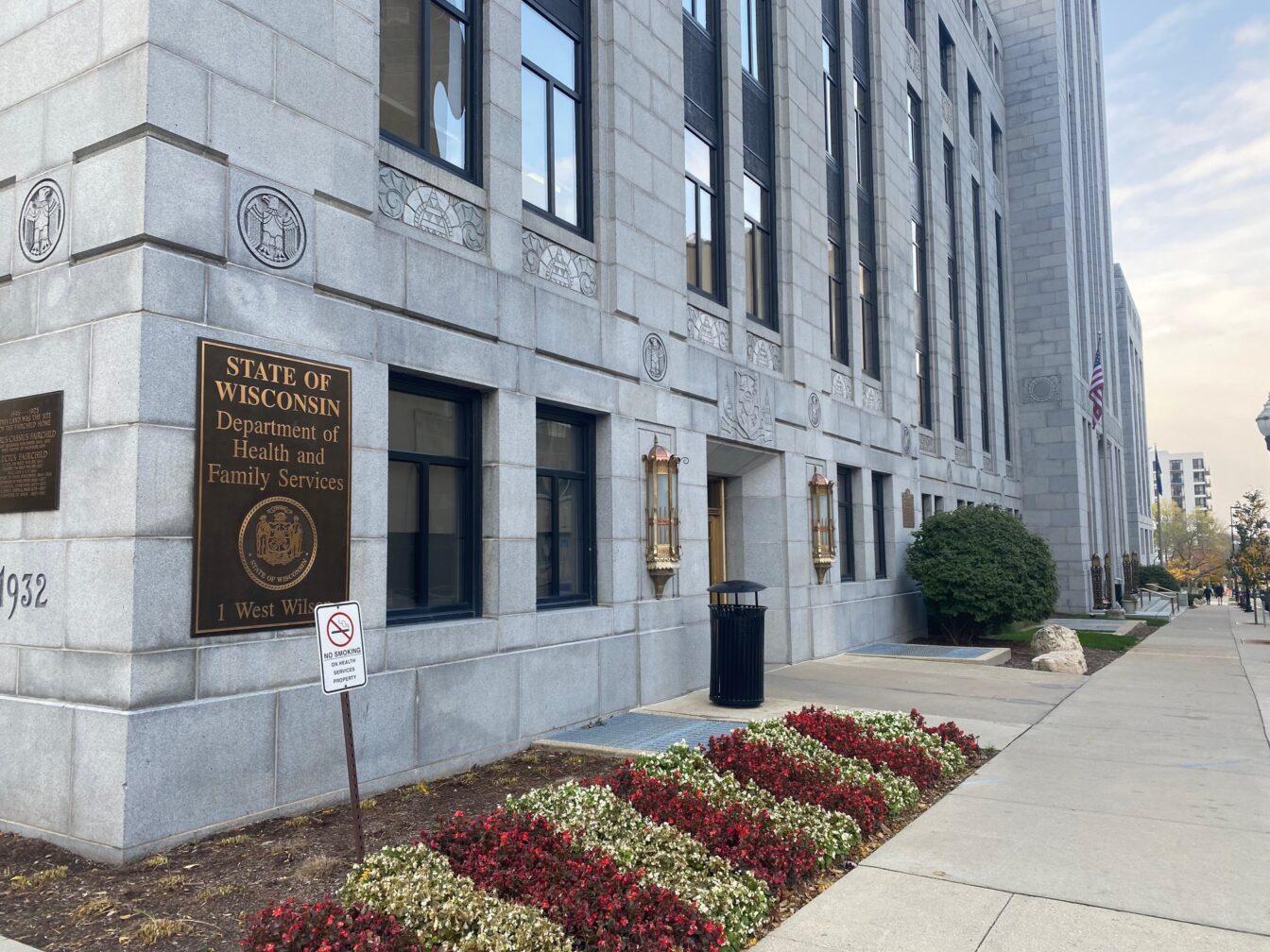Erica Koepsel’s sex education experience didn’t start in middle school or high school like other students — it started years later, in college.
“I’m born and raised in Kansas and then went to college in a small school in Topeka, Kansas, where we had a gender and women’s studies course that I took,” Koepsel said. “[The course] brought in a sexual health educator who taught us all about contraception. And leaving that class, I was livid that no one had taught me that in high school and that I didn’t have the information that I — or really that my friends — needed.”
Koepsel said she was so interested in why she lacked sex education in high school — and making sure other high schoolers wouldn’t have that experience — that she started to intern, volunteer and work in sexual health education, she said.
Ten years after her gender and women’s studies course, Koepsel is now the Program Manager for Providers and Teens Communicating for Health, a youth-driven, Madison-based program working to ensure all adolescents are able to receive high-quality health care services in their community.
Mixed Messages
In the cult classic film “Mean Girls,” the grossly incompetent gym teacher, Coach Carr, doubles as the sex ed instructor. “Don’t have sex, because you will get pregnant and die,” he proclaims. “Just don’t do it, OK, promise?”
This is just one example of what teens grow up hearing about sex education and sexual health. These messages, along with the ones received in high school, tend to stick with students throughout their lives, according to Assistant Professor of Gender and Women’s Studies at the University of Wisconsin Chris Barcelos.
The problem with students remembering these messages, Barcelos said, is while some people receive comprehensive sex education in high school, others receive no sex education or even incorrect information.
And Koepsel said in her work she too has found that many issues can arise with poor or nonexistent sexual health education.
“If you have poor sex education — if you have sex education that’s bad, wrong or shaming — that can cause a lot of identity crisis issues,” Koepsel said. “Especially with young LGBTQ people or people that might just be exploring their own identity, if they have had a sexual health [program] that has only shown sex as penile-vaginal intercourse there’s a huge part missing.”
Koepsel said one of the biggest problems she faces with the sex education her PATCH students receive is that students are not taught communication skills around sex. This creates problems with consent and students not having agency in their own sexual experiences because they haven’t been taught how to say yes or no to things, or even what they’re talking about to begin with.
Barcelos said even when schools teach comprehensive sex education, it’s typically abstinence-only and heteronormative. Not only can this create negative gender power dynamics — it doesn’t stress other crucial elements. “If you have poor sex education — if you have sex education that’s bad, wrong or shaming — that can cause a lot of identity crisis issues. Especially with young LGBTQ people or people that might just be exploring their own identity, if they have had a sexual health [program] that has only shown sex as penile-vaginal intercourse there’s a huge part missing.”
“Even when sex education is comprehensive or evidence-based, it [often] doesn’t talk about consent, it doesn’t talk about pleasure,” Barcelos said. “It still positions women and girls as passive defenders of boys and men who are going to try to convince them to do things they don’t want to do. You know, it’s very heterosexist. So even sex education that’s good is pretty [hard to come by] and is often pretty stigmatizing around sexual health.”
Barcelos added that stigmatizing sexual health education, combined with the misinformation found in movies and pop culture, can create life-long problems for people — resulting in not being ready to handle situations that will likely come up in their lives.
“Young people get a lot of wrong and harmful information, and not the skills they need either — like how to negotiate consent, or how to deal with an unintended pregnancy, or how to cope with living with an STI or any of the skills they may need as adults,” Barcelos said.
Across State Borders
But, Barcelos said the biggest problem the United States faces in sex education is the huge discrepancy of what students learn state-to-state.
“Most states do not require that their sex education be medically accurate, so there’s no guarantee that the sex education you actually got was accurate,” Barcelos said. “Some states actually have laws where you can only talk about LGBTQ people as bad.”
In the U.S., 29 states mandate sex education, with only 17 of those states requiring the information to be medically accurate, according to the Guttmacher Institute.
Wisconsin does not fall into either one of those categories.
In Wisconsin, school districts are required to teach HIV education, which must stress abstinence. Additionally, when sex education is provided in schools, abstinence must be stressed as well as the importance of sex only within a marriage. Information on dating and sexual violence prevention also needs to be distributed.
Koepsel said with these mandates, so much of the sex education that happens in Wisconsin schools is left open for each school to decide. Because of this, each school is different, so students from neighboring towns can have vastly different knowledge.
“In the state of Wisconsin, no one knows what’s happening in any given school, minus the students. And I think that’s the biggest challenge,” Koepsel said.
Associate Director of Teaching & Learning in the Green Bay School District Eric Conn said their schools teach abstinence-only sex education in high school with information on puberty and reproduction in fourth through sixth grade. Conn said he believes they have a comprehensive sex education curriculum.
“Our Human Growth and Development curriculum in middle and high school provides students instruction in a wide variety of knowledge and skills in the subject, as well as exceeding the minimum requirements outlined in state statute,” Conn said in an email to The Badger Herald.
But, Morgan Healey, a junior at UW who went to Green Bay Southwest High School, said she remembers learning more about performance-enhancing drugs in health class than sex education in middle school.
“Looking back I never had high school sex education that I can remember… so if we did it clearly didn’t have much of an impression on me,” Healey said. “I do remember a small amount of sex education in middle school.”

Culture Shock
Koepsel said when students from across the country come together in college, all with the different levels of sex education, it can be difficult to navigate those differences.
“We’re coming in with so many different areas of knowledge — as educators who don’t know what other educators are doing, as teens who don’t know what other teens have learned — and all meeting in that common space at colleges or universities, or in workforces,” Koepsel said. “So I think the fact that it’s so different and that no one really knows what’s happening makes it so much harder.”
Barcelos said with the messages about sex kids see in pop culture as they grow up, students come to college pressured to be part of hookup culture — which exposes the discrepancies in sex education and leads to unpreparedness and stigma when something goes wrong.
“[Students] are in a situation where there’s pressure to be part of hookup culture, and so then when someone gets an STI or has an unplanned pregnancy or something like that, they are totally stigmatized,” Barcelos said. “Then that stigma is part of what prevents people from not just having safer sex, but having a fulfilling sex life.”
Different levels of sex education can also present inequalities, Barcelos said, as families who can afford to send their student to private school may receive better sex education, as they are not bound by federal and state funding. On the flip side, however, high schoolers attending religious private schools can often be taught misleading or incorrect information.
This was the case for John Spengler, a sophomore at UW who went to a private Catholic school in northwest Ohio and received no sex ed outside of Catholic family planning methods. For Spengler, coming to college was a large culture shock.
“The extent to which [UW], especially dorms, was open about sexual topics was somewhat surprising,” Spengler said. “While I always figured that there would certainly be sexual education opportunities available to all students, I can’t say I anticipated walking into the Witte bathrooms at 9 a.m. on a Friday and seeing dozens of condoms spread out on the counter.” “[Students] are in a situation where there’s pressure to be part of hookup culture, and so then when someone gets an STI or has an unplanned pregnancy or something like that, they are totally stigmatized. Then that stigma is part of what prevents people from not just having safer sex, but having a fulfilling sex life.”
While he does believe there should be general better sex education in private schools, Spengler said he believes better sexual education was not necessary for him in high school, as he attended public school until 9th grade where he received comprehensive sex ed.
Sex education can vary even more for international students, as depending on their countries, talking about sex may be considered “taboo.” This was the case for Arushi Gupta, a freshman at UW who went to high school in Delhi National Capital Region, India. She did not receive explicit sex education whatsoever.
“Even though I’m from a pretty big city, I still come from a country where talking about sex is taboo,” Gupta said. “The education system requires all sophomores to study menstruation and reproduction, but safe sex is not mentioned in any textbook until your senior year, if you choose to continue studying biology.”
Gupta said while she does not think the lack of sex education she received affected her experience coming to UW, she does believe every person should receive sex education in high school because puberty takes place at this time. It is also important to know about STIs, how to practice safe sex and about different contraception methods, she said.
Correcting Misconceptions
For students who feel that “culture shock” at UW, there are programs and clubs on campus to help. One of these organizations is Sex Out Loud, UW’s peer-to-peer sexual health resource. It provides students with inclusive and accessible comprehensive sexuality education programs, events and resources, and creates safe spaces where students can freely discuss these issues, Chair of Sex Out Loud Song Kim said.
Kim said one of the biggest problems the organization faces is realizing the shallowness of sex education programs students receive before coming to UW.
“As amazing as it is to hear how life-changing the information provided at Sex Out Loud can be for some folks, that reality is disheartening,” Kim said. “Much of the sex education that the average American teenager receives is often based in purely preventative reproductive healthcare. Meaning, there often is no discussion of sex as part of human nature for many people, or a discussion on steps to take after testing positive for a sexually transmitted infection or a pregnancy test.”
Kim, like Barcelos, said this form of sex education can be uninclusive to many, as it is typically heteronormative and sex-negative.
No matter how comprehensive the sex education curriculum is at a school, Barcelos said it is hard to imagine there ever being a completely inclusive, sex-positive focus. But, Barcelos believes there is a way to educate young people accurately on sexual health and education — with the internet.
“We know from research that a lot of young people learn about sex from peers and the internet,” Barcelos said. “I think that that is only going to continue, and that cultivating those as useful and reliable sources of information… [is] maybe a better strategy than trying to fix sex education in schools, which I kind of feel like is unfixable.”
And while there are definite problems within sex education in schools, Healey said talking about it is really the first step.
“I think the first step to anything is talking about it, as cliche as that might sound,” Healey said. “Learning to have a conversation definitely prepared me to be more comfortable with the idea, but there is definitely more work to be done if the current education is anything like eight years ago.”














